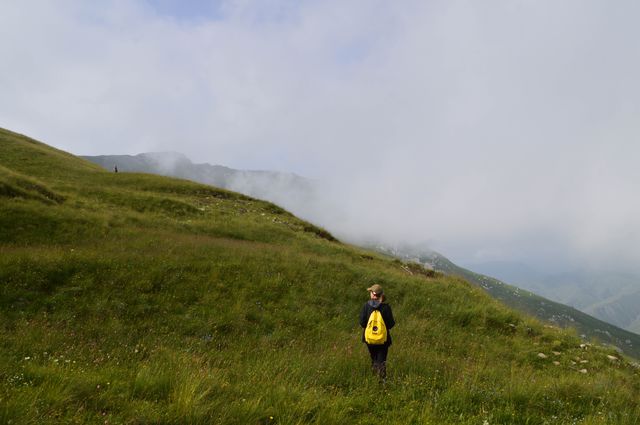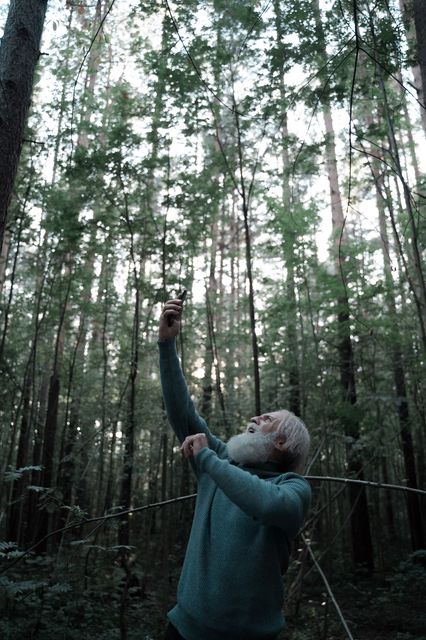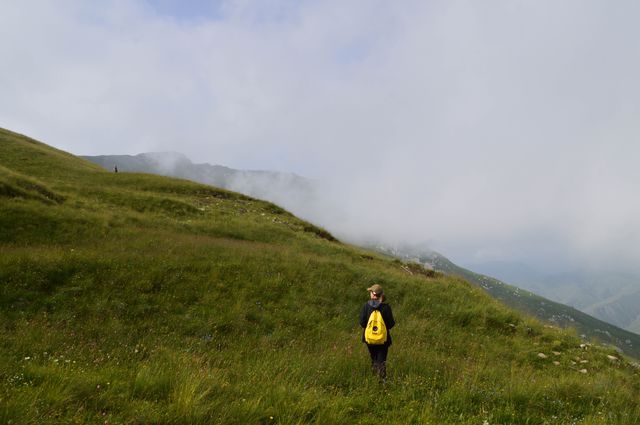
The next day John again was standing with two of his disciples, and as he watched Jesus walk by he exclaimed, “Look, here is the Lamb of God!” The two disciples heard him say this, and they followed Jesus. When Jesus turned and saw them following he said to them, “What are you looking for?” They said to him, “Rabbi” (which translated means Teacher), “where are you staying?” He said to them, “Come and see.” They came and saw where he was staying, and they remained with him that day. It was about four o’clock in the afternoon.
John 1: 35-39
Questions can be an attempt to get information. How do I get to your house? What time does the meeting start? Who was that new person at the office? The answers to these questions are straightforward. You get the information you seek, and you move on.
Some people want to reduce questions of faith to attempts to get information. Give me the right teachings and the right beliefs, and I can feel a certainty in my life. And yet, questions of faith are invitations to deeper reflections. They are an invitation to deeper conversations. With yourself. With others. With God.
Sometimes, a simple question for information, if we stay with it and let it live inside of us, can become a question of faith that we spend the rest of our lives trying to answer. Jesus sees that two men are following him. He turns to them and asks, “What are you looking for?”
At one level, these words are a simple conversation starter. At a deeper level, it is a question that anyone who is seeking meaning and purpose in life has to consider. It is a question that Jesus poses to all who consider following him. What are you seeking? What are you hoping will happen? What are you hoping will be true as you enter into dialogue with me and as you open your life to my presence? Before I name to you who I am and what I am about, Jesus says, tell me who you are and what you are about?
What are you looking for? We can think about this as a question we ask as we begin a journey of faith, whether that beginning was many years ago or in the last few days of living.
That’s how it appears in this story, at the beginning of Jesus’ ministry and John’s gospel. Perhaps we think the question was answered and settled in those beginning moments, and so, we don’t really need to revisit it or give it much thought.

But maybe the question, “What are you looking for?”, is a question we ask over and over again on our journey of faith. When the movement of our lives seems to be filled with uncertainty, anxiety, or fear, when our lives seem to be empty of meaning and direction, when our lives are reduced to the ordinary and the mundane—in all of these moments, the key to moving through them to the promise and presence God offers us begins with the question “What am I looking for?”
In response to Jesus’ question, the disciples offer a question of their own: “Rabbi, where are you staying?” It seems like a strange response. Are these guys that interested in where Jesus is staying? Are they going to walk into his house or campsite, look around, and say, “Well, Jesus, we like what you’ve done with the place.”
By answering Jesus’ question with a question of their own, there is something unspoken, something deeper going on in these two men.
Maybe without even knowing it or being able to acknowledge it, these two men are speaking an honest and earnest desire. Perhaps “Rabbi, where are your staying?” is their way of declaring their fascination and intrigue and curiosity about this man whom John has just described as the Lamb of God. Perhaps it is their way of saying they want to spend more time with and learn more of this man Jesus and the promise and hope he offers to them as the Lamb of God.
It would be easy to criticize these men as disingenuous, dishonest, and deceptive. And yet, how often have we struggled in declaring our real yearnings, desires, struggles, and question in our conversations with God. How often have we been hesitant to reveal our hearts and souls to God because we realize that, in doing so, we would be revealing those same hearts and souls to ourselves?

Jesus knows the struggles of their hearts. He senses the real questions they want to ask but are unable to do so. And I believe that knowledge is the source of Jesus’ response to them: Come and see. Not, “Why would you ask such a silly question?” or “Tell me what’s really on your mind.” Instead, it is come and see.
Jesus’ invitation is the heart of this story, for these men and for each of us. Come and see. It is an invitation that speaks to the core of our being. While it sounds inviting, another part of us knows that we don’t necessarily want to see. We hesitate to see our hopes and dreams and desires, for fear that they won’t be realized or come to pass or that God will see them as foolish or insignificant. We don’t want to see our hurts and disappointments and struggles, because no matter how much we believe that God is bigger than all of them, we fear that seeing and facing them will overwhelm us.
What are you looking for? Come and see. I wonder if those words capture the essence of what it means to be a disciple.
What are you looking for?

We are not invited to know with certainty. We are invited to always be looking, always be seeking. Maybe what Jesus sees in these people whom he chooses as followers is not their keen insight or intellectual acumen. Maybe it is the fact that even while they never understand fully what Jesus is about, they stay with him and keep trying to get it. They keep seeking. They keep looking.
Come and see.
A disciple is not someone who believes certain ideas, who worships a certain way, or even performs certain deeds. A disciple is someone who comes and sees, someone who keeps coming and keeps seeing.
When you rise in the morning, wonder to yourself: What am I looking for? When you enter into that class or meeting, wonder to yourself: What are I looking for? When you celebrate or mourn, wonder to yourself: What am I looking for? In all of these moments accept the invitation to come and see.
